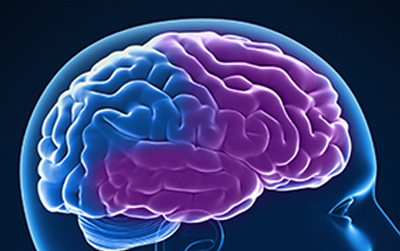The Neurological Abyss of Frontotemporal Dementia
"I was reminded that all of us are at risk for spending our final epoch lost in a neurological swamp.""What is remarkable about the swamp that we call FTD is that it's a somewhat rare and unusual type of dementia.""If the disease follows its typical path, that will probably include slowly disconnecting and progressively losing emotional judgment and control as well as losing a reasonable understanding of what or why any of it is happening.""[Some sufferers lose] verbal fluency [They experience problems speaking properly and speech can become slurred]."Michael Merzenich, neuroscientist, professor emeritus, University of California, San Francisco"The vast majority of patients have no insights into the changes that are happening with their behaviour or their personality.""And in sporadic FTD. the only sort of environmental or life history risk factor that's been identified so far is concussion or traumatic brain injury.""We see pretty relentless progression of the loss of connections in the brain, the loss of synapses, the loss of neurons.""There's a fair bit of variability between people and their rates of decline. But over time, judgement, decision-making, memory even, and certainly language deficits get worse""FTD, in any of its forms, is devastating for patients and just as devastating for partners and caregivers."Dr/ Elizabeth Finger, neurologist, St.Joseph's Health Care London / associate professor in clinical neurological sciences, Western University
FTD is the short form for frontotemporal dementia, a condition which is mostly related to losing control of emotions, not so much about a declining memory. Depending on which part of the brain is affected, symptoms vary, but include frequently a profound loss of inhibition and empathy, and its symptoms become more serious as time wears on.
Of the various types of dementia that generally arise with old age, FTD is different from Alzheimer's. The condition is, in fact, a collection of disorders, considered the second-most common -- early onset neurodegenerative dementia -- tending to strike people a decade earlier than Alzheimer's, "So, people in their 50s to early 60s", says Dr. Finger. And unlike Alzheimer's whose early signs are often memory-linked, with FTD classically, the first changes affect behaviour, personality, judgment and decision-making, while some variants of FTD affect language.
 |
| MedPage Today |
This condition was suddenly highlighted when it was revealed several years ago ago that the actor Bruce Willis is suffering from FTD, arousing the interest of the public. It puts a familiar face out of films, action films that fascinated people when he portrayed an intelligent, muscular action-oriented hero-role bad boy. The message some people may have received from the news was that if this athletic figure could suffer a neurological injury to his brain, anyone could. And they could, in fact.
There is a genetic, inheritable component, but there is also a much larger component that represents haphazard selection. Some 40 percent of cases are felt to be of hereditary extraction in susceptibility to the disease; at least one family member with another neurodegenerative disease, not necessarily FTD. The balance, 60 percent on the other hand, are considered to be not of genetic origin, but arising sporadically.
A concussion could conceivably explain the origin of some cases, but most of those with FTD have never had the experience of a concussion "and the majority of people with a concusion don't get FTD", says Dr. Finger. FTD is most often most severe in the frontal and temporal lobes of the brain; a condition that can begin on one side or the other but over time both sides of the brain tend to become affected. In the sense that parts of the brain shrink, or atrophy.
 How a person's symptoms or decline will manifest is unpredictable. just as what the symptoms will become like six months on, a year later, are unknowable. Generally social norms and social graces become affected; people are seen to make comments to family, friends or strangers that are inappropriate, rude or overtly personal. "Verbal fluency" becomes a loss for some patients, experiencing problems in speech. "In terms of apathy, patients lose interest in work, in hobbies they used to spend a lot of time on", Dr. Finger added.
How a person's symptoms or decline will manifest is unpredictable. just as what the symptoms will become like six months on, a year later, are unknowable. Generally social norms and social graces become affected; people are seen to make comments to family, friends or strangers that are inappropriate, rude or overtly personal. "Verbal fluency" becomes a loss for some patients, experiencing problems in speech. "In terms of apathy, patients lose interest in work, in hobbies they used to spend a lot of time on", Dr. Finger added.In time disinterest in the family becomes obvious or in friends whose welfare at one time the patient was deeply engrossed in. The patient gravitates emotionally to an inward cycle, concerned solely for their own welfare "and not really able to consider other people's perspectives anymore or consider their emotional needs". With no awareness of what is occurring, patients become insistent that nothing has changed. "They can't understand why anyone is concerned."
No cure has been found for the condition, nor a therapeutic path to slowing its progression. Behavioural changes and language problems with the use of some strategies may help. Oxytocin, a hormone that operates on a signalling molecule in the brain of men and women is being tested by Dr. Finger and her colleagues in the hope it might influence social behaviour.
"It kind of got a reputation as being pro-social, even a maternal kind of hormone", improving pair bonding and grooming and nesting behaviours when tested in both sexes of laboratory animal models. Whether it might be capable of offering help in the restoration of some empathy deficits with FTD in humans is the experimental goal. A randomized, placebo-controlled trial involving under a hundred patients is in the wrap-up stages.
 |
| Bruce Willis in London at the 2013 premiere of A Good Day to Die Hard - the fifth film of the Die Hard franchise Getty Images |
Labels: Frontotemporal Dementia, FTD. Neurodegenerative Disease, Incurable, Research, Treatment

0 Comments:
Post a Comment
<< Home